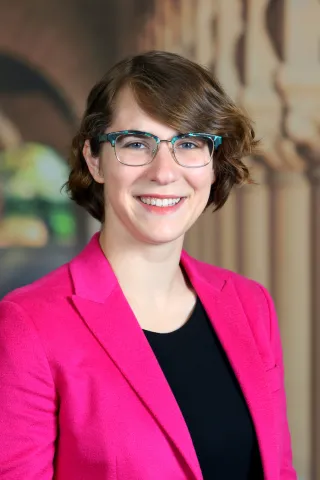
Emily Schell

Since middle school, I have been curious about how educators, policymakers, and community members can improve the education that marginalized immigrant populations receive in the U.S. and abroad. Although my work started stateside with the founding of a 501(c)(3) nonprofit, Promise for Preschool, to support predominantly immigrant, Latinx students in Head Start preschool programs in Northern Virginia, my studies in college took me far from home to the outskirts of Shanghai, China. There, while working for a nonprofit, Stepping Stones, I learned that the educational inequalities rife in American school systems also plagued migrant communities in China’s cities, including Shanghai and Beijing. As an International Relations and East Asian Studies double major at Brown University, I found myself increasingly drawn to issues concerning international education, such as those impacting the migrant communities that I had grown to care deeply about through that summer at Stepping Stones and my undergraduate honors thesis on nonprofit support of these communities.
After Brown, I was fortunate to receive a Fulbright scholarship to teach English in a rural part of Taiwan, the small island of Kinmen. There, I witnessed fantastic teachers engaged in pedagogy that nurtured students’ unique interests. At the same time, however, I saw inequalities between Kinmenese and “foreign” students as well as recurring issues stemming from an education system that funnels students into tracks based predominantly on test scores, as opposed to students’ interests or desires. Although I loved my time teaching in Taiwan and knew I would enjoy continuing as an educator abroad or in the U.S., my Fulbright experience raised many questions that I yearned to answer.
These questions led me to the International Comparative Education program at Stanford, where I pursued a mixed methods study on how Chinese and Taiwanese diaspora students’ acculturation experiences at U.S. universities moderated the relationship of autonomy in their choice of undergraduate or graduate study and their tenacity and passion for learning for that course of study. Completing a mixed methods paper, which combined a self-designed survey with many hours of interviews, was a very ambitious task. Without the guidance and advice of my program director, my advisors, and the incredible teaching assistants of the ICE/IEPA program, it would have been impossible to complete. These individuals took the time to meet with me each week to help me with everything from reigning in the scope of my survey questions to selecting the best statistical methodologies and interview codes for my data analysis. In addition to the amazing support I received throughout my research process, I was immersed in courses as diverse as international education policy and psychological theories on the development of parent-child relationships. These courses pushed me to probe the broader context of my research interests. Why might Chinese or Taiwanese education systems place emphasis on student test scores and how does this emphasis connect with a need to be globally competitive? How does the formation of a parent-child bond in a collectivist society, such as that of China, differ from this formation in an individualist society, such as that of the U.S.? As the adage goes, the more I learned about my research interests and those of my peers, the more I realized how much I did not know – but wanted to find out. In sum, through this master’s program, I became a better student, researcher, and thinker.
As evidenced by the above, I have greatly enjoyed my time at Stanford and in the ICE program. In fact, I enjoyed my time at Stanford so much that I applied to pursue further study here. I was lucky enough to be admitted into the Developmental and Psychological Sciences (DAPS) doctoral program at the Graduate School of Education, which will allow me to continue investigating the research questions that have fascinated me and interacting with the faculty who I have come to call mentors and friends. I am excited to embark on this five-year journey, one which I know will be just as fruitful and fun as my past year here.
